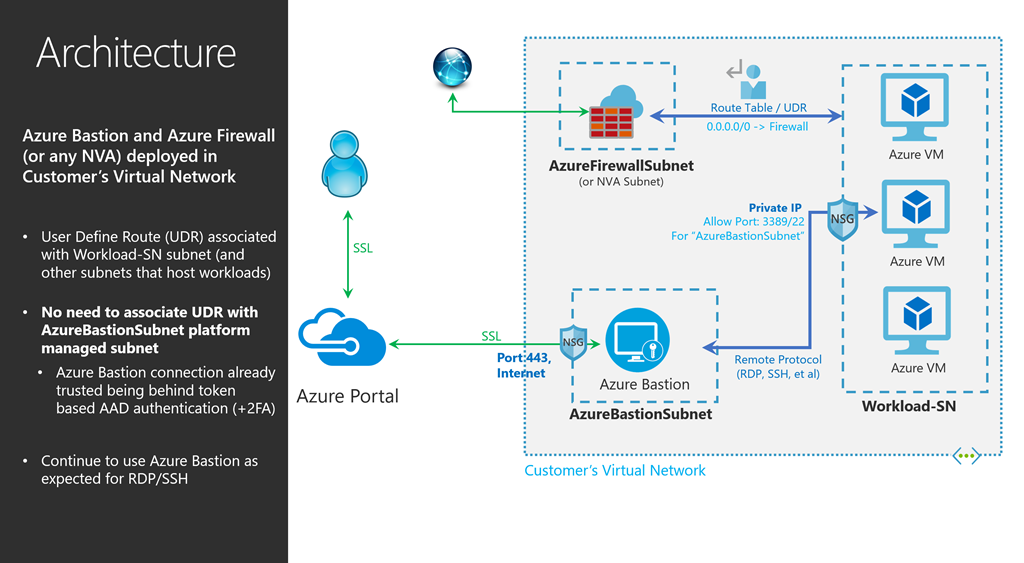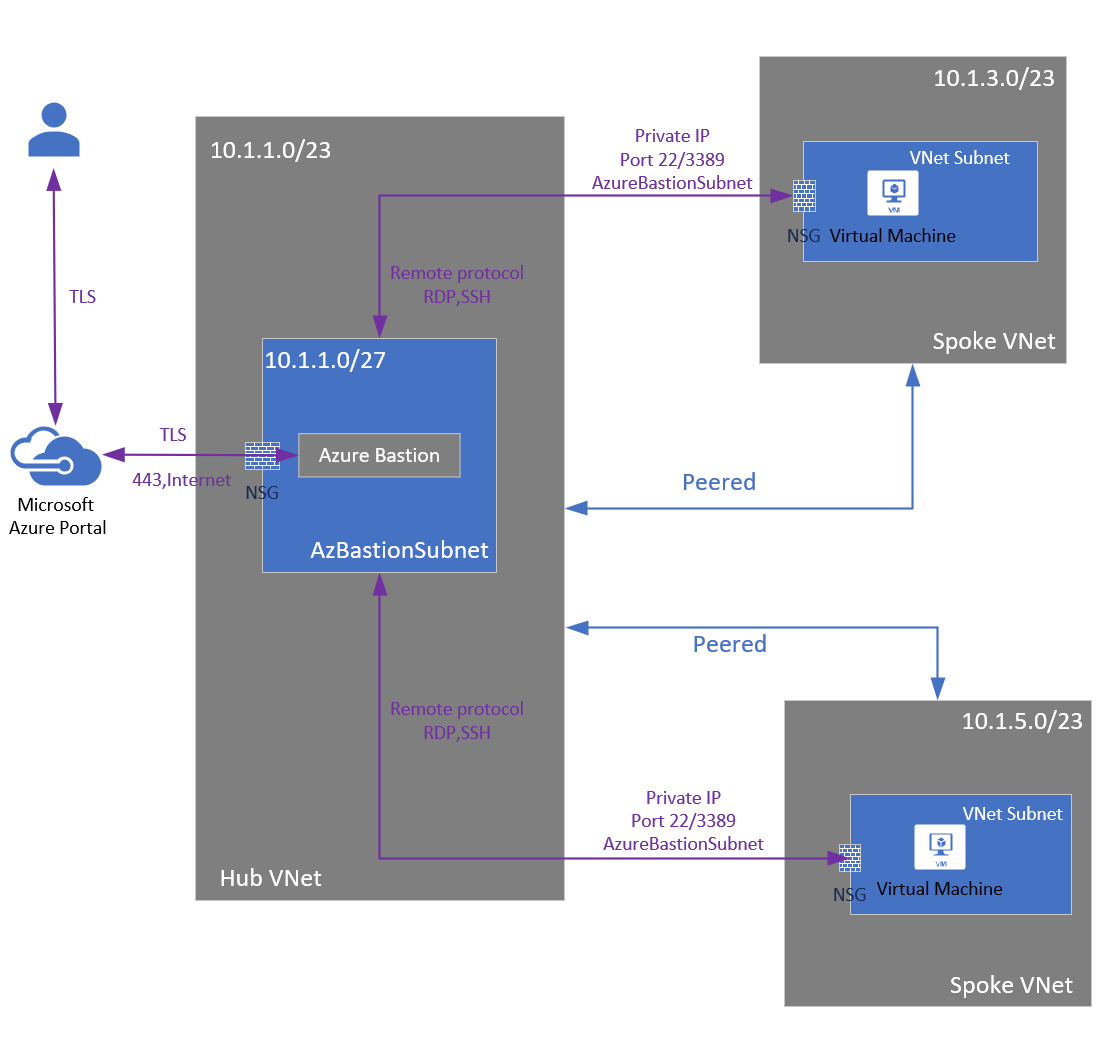@Stefano Colombo Apologize for misunderstanding your question. I am glad you found the answer to it. Regarding concurrent session, here are the Azure Bastion Limits. Based on the workload type, the Bastion Host can either support upto 100,50 or 5 concurrent session. To increase this limitation, you can perform Host scaling.
As mentioned here in Host Scaling, Azure Bastion supports manual host scaling. You can configure the number of host instances (scale units) in order to manage the number of concurrent RDP/SSH connections that Azure Bastion can support. Increasing the number of host instances lets Azure Bastion manage more concurrent sessions. Decreasing the number of instances decreases the number of concurrent supported sessions. Azure Bastion supports up to 50 host instances. This feature is available for the Azure Bastion Standard SKU only.
Hope this helps. Please let us know if you have any further questions and we will be glad to assist further. Thank you!


